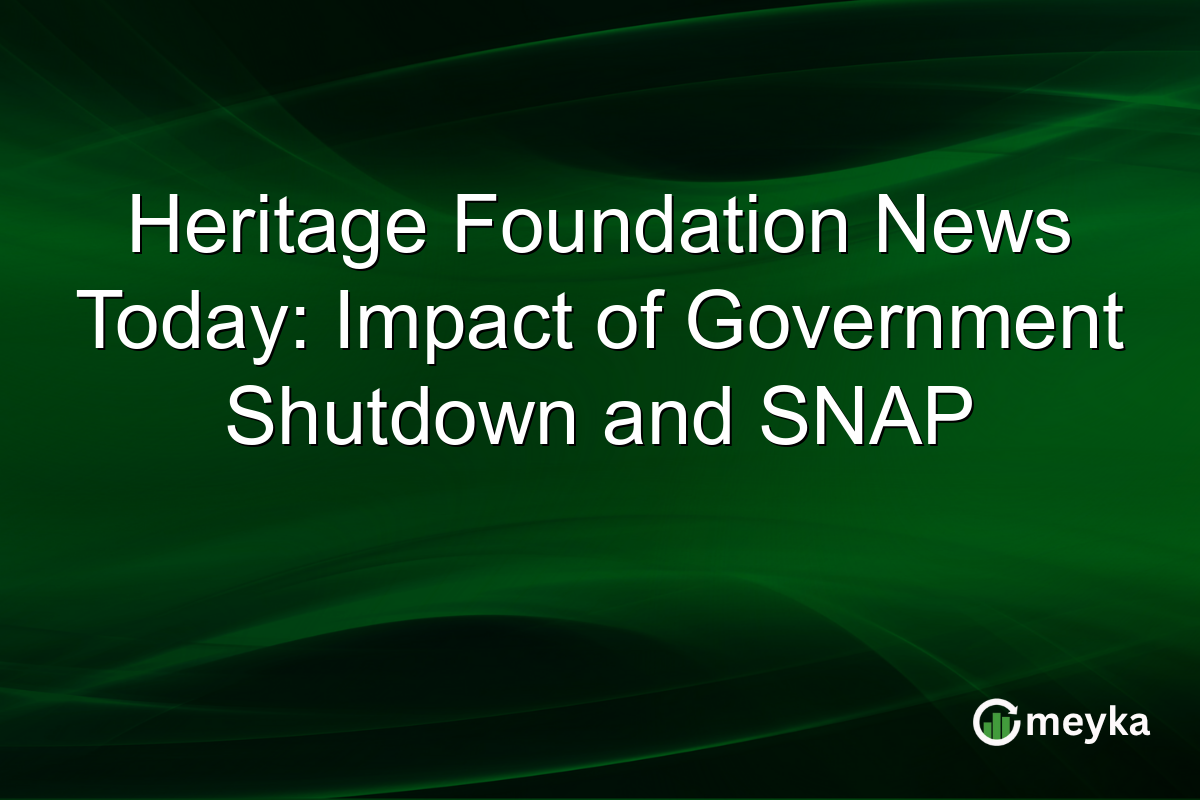Heritage Foundation News Today: Impact of Government Shutdown and SNAP
The recent U.S. government shutdown has had widespread effects across various sectors, notably impacting social programs like the Supplemental Nutrition Assistance Program (SNAP). In Michigan, these disruptions have paused benefits, heightening public concern. The Heritage Foundation’s insights highlight the urgency to evaluate policies, emphasizing the broader economic implications. As we investigate this development, we unravel the effects on both recipients and the economy.
Understanding the Government Shutdown Impact
The latest government shutdown has led to significant disruptions. Social programs like SNAP—which provide crucial assistance to over 40 million Americans—have been particularly affected. Michigan has seen benefits paused, leaving recipients stranded. This highlights the critical need for emergency funds during shutdowns, urging lawmakers to reassess their approaches to budget allocations. With economic pressures mounting, these disruptions reflect the urgency for preventive measures.
Heritage Foundation Insights on Policy Implications
The Heritage Foundation, a prominent think tank, has voiced concerns over the shutdown’s long-term effects. Their analyses stress the necessity for policy reform to safeguard vital social programs. The current scenario exposes deep flaws in federal budgeting that can leave vulnerable populations at risk. The Foundation advocates for structured financial strategies that ensure social benefits remain unhindered. This evaluative stance calls for an overhaul in governmental priorities.
Impact on SNAP Benefits and Broader Economic Implications
SNAP benefits are a lifeline for many low-income families. The impact of their suspension is far-reaching, leading to increased food insecurity among the most vulnerable. Economically, the shutdown disrupts the liquidity flow, affecting local businesses reliant on SNAP transactions. As public demand for policy changes grows, the imperative need for a stable budgetary system becomes evident. Proposals focus on creating contingency funds to protect such programs during financial crises. View discussions and public reactions.
Public Concern and Calls for Policy Evaluation
Public response has been intense, with widespread calls for a reevaluation of current policies governing social welfare programs. The Heritage Foundation’s stance underlies the importance of policy agility. Adaptations in funding strategies could mitigate adverse effects during shutdown periods. Enhanced governmental mechanisms could assuage food insecurity and financial instability. Greater transparency and accountability are needed to maintain public trust in federally administered programs.
Final Thoughts
The government shutdown has underscored the fragility of our social welfare infrastructure. As the Heritage Foundation emphasizes, policy reform is essential to protect critical programs like SNAP during fiscal crises. The need for robust budgetary safeguards is clear, calling for proactive measures to maintain social stability. Moving forward, lawmakers must prioritize restructuring financial protocols to prevent future disruptions and protect vulnerable communities effectively.
FAQs
A government shutdown can pause SNAP benefits, interrupting the distribution of funds to recipients. It leads to increased food insecurity among low-income families who rely on this assistance for daily nutrition.
The Heritage Foundation provides analytical insights into the effects of a government shutdown. They advocate for policy reforms to secure social welfare programs like SNAP against such disruptions, emphasizing financial strategy and stability.
Policy evaluations are crucial to identify weaknesses in current government spending and resource allocation. They help ensure that vital programs like SNAP are not disrupted, thus maintaining economic and social order.
Disclaimer:
This is for information only, not financial advice. Always do your research.






